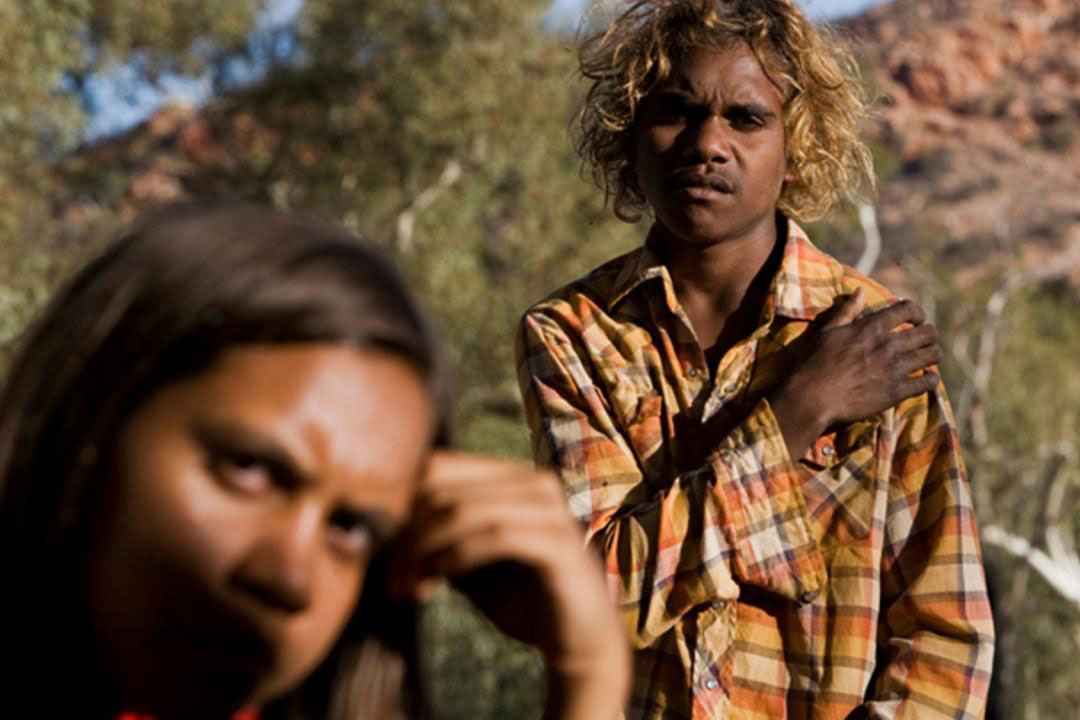The United Nations declared 2019 the International Year of Indigenous Languages to highlight the immense value of the world’s indigenous languages, raise awareness about language loss, and encourage action to reclaim and revitalize languages.
Recognizing film as a transformative tool for linguistic empowerment and cultural self-determination, the Center for Folklife and Cultural Heritage has partnered with the Festival of Indigenous Australian Cinema and the Musée du Quai Branly–Jacques Chirac to present a first-of-its-kind film festival in Paris, France, as one of the flagship events of this important year of programs.
Films d’auteur/Langues ancestrales (Author Films/Ancestral Languages) is curated by Amalia Córdova, digital curator at the Center for Folklife and Cultural Heritage, and Greta Morton Elangué, founder and artistic director of the Festival of Indigenous Australian Cinema in Paris. Screenings are held at the Musée du Quai Branly–Jacques Chirac, one of the most prominent European venues for Indigenous arts and culture. All screenings are free to attend on a first-come, first-serve basis.
Sixteen films will be shown over four days from November 28 to December 1, 2019. They represent seventeen languages and range in origin from Senegal to the Solomon Islands, with a special emphasis on Australian and Oceania communities. The retrospective program includes classic trailblazing works alongside many recent feature-length and short films, testifying to the explosion of new voices in Indigenous film.
The festival delves into the worlds of traditional storytelling, with language at the center. Addressing themes of identity, territory, self-determination, displacement, and family ties, the films exemplify the creative breadth and tenacity of filmmakers telling stories in their own mother tongues.
See details in French and the full program in English.
Festival Highlights
Directors’ roundtable discussion on the challenges and possibilities of representing Indigenous languages onscreen
- Warwick Thornton (Samson and Delilah, Australia)
- Becs Arahanga (Vai, Aotearoa/New Zealand)
- Itandehui Jansen (Tiempo de Lluvia, Mexico)
- Nu Kahnu (lead actor, Tiempo de Lluvia)
Films representing an Indigenous language for the first time:
- Sgaaway K’unna (Edge of the Knife) – Haida (Canada)
- Wiñaypacha (Eternity) – Aymara (Peru)
Works by young and emerging filmmakers:
- Yulubidyi (Until the End) – Curtis Taylor and Nathan Mewett (Australia)
- The Greedy Emu – Terrah Guymala (Australia)
- Imfura – Samuel Ishimwe (Rwanda)

Curator Amalia Córdova explains why Films d’auteur/Langues ancestrales is so vital: “At this critical time for Indigenous peoples worldwide, film and media in Indigenous languages remain largely excluded from the mainstream. Film and media are essential mediums for self-determination for Indigenous peoples. With the lens, filmmakers do not only document language and culture, they also create new stories and new perspectives.”
Cordova also co-directs the Mother Tongue Film Festival, an annual Smithsonian event in Washington, D.C., that celebrates language revitalization around the world and explores the relationship of language to knowledge, history, and community.
Now, the Center is proud to help present these Indigenous voices on a global stage.
“Language revitalization is one of the pillars of our work in cultural sustainability,” says Center director Michael Atwood Mason. “With the Center’s Indigenous Media Hub launching soon, collaborative support for media in Indigenous communities is another growing area of focus. Sharing films in Indigenous languages widely is an opportunity to communicate and celebrate diversity, explore Indigenous perspectives, and promote cultural democracy.”
Films d’auteur/Langues ancestrales is a product of collaboration. Translation for Tiempo de Lluvia was provided by Arenet/The Americas Research Network. Additional support comes from the Direction Regionale des Affaires Culturelle de Paris, The Cloud Lab, the City of Paris, and the Embassy of Australia in France. The Year of Indigenous Languages is an initiative led by UNESCO. The Center is one of the non-governmental organizational accredited to advise UNESCO on intangible cultural heritage policies.


